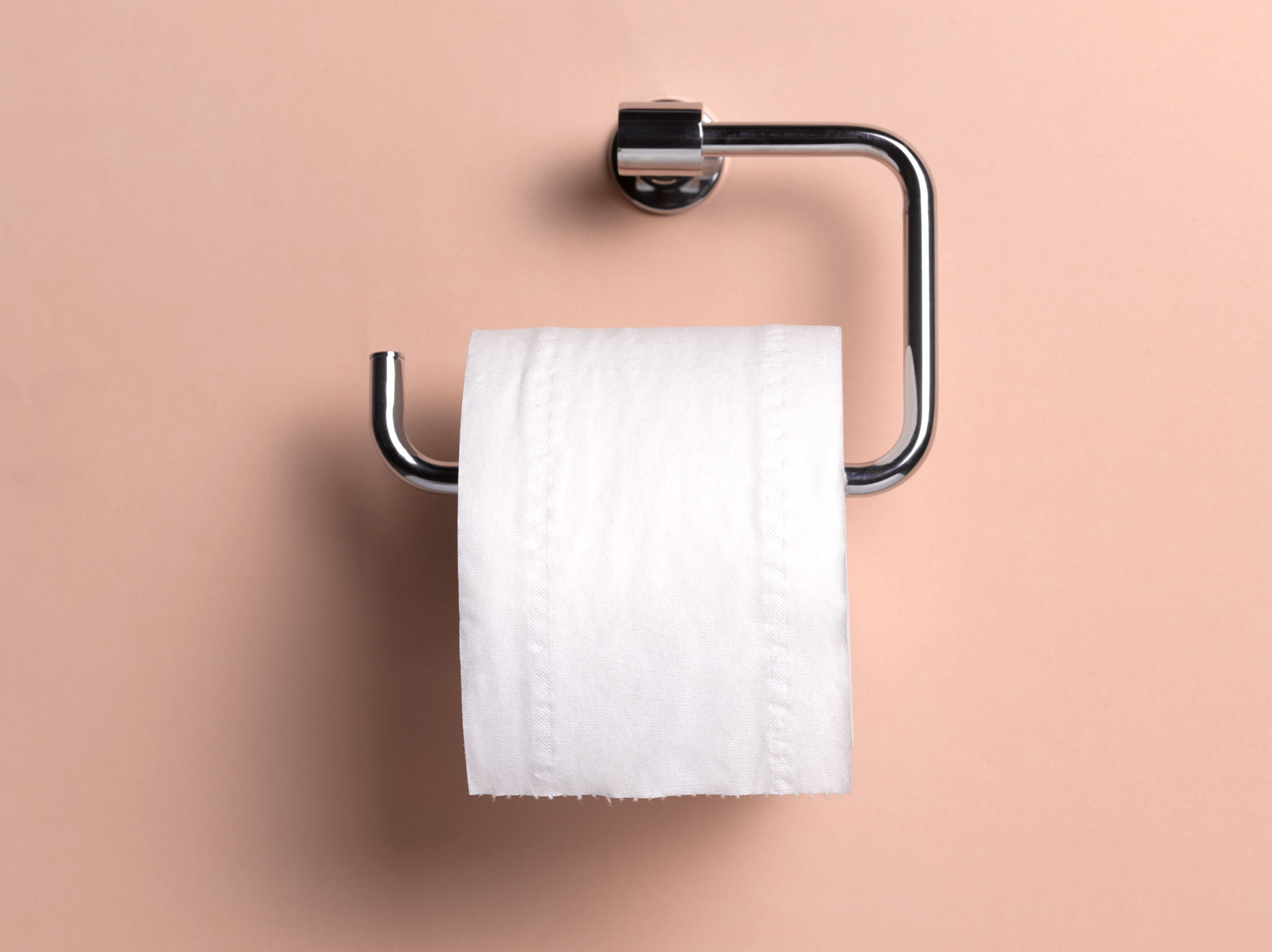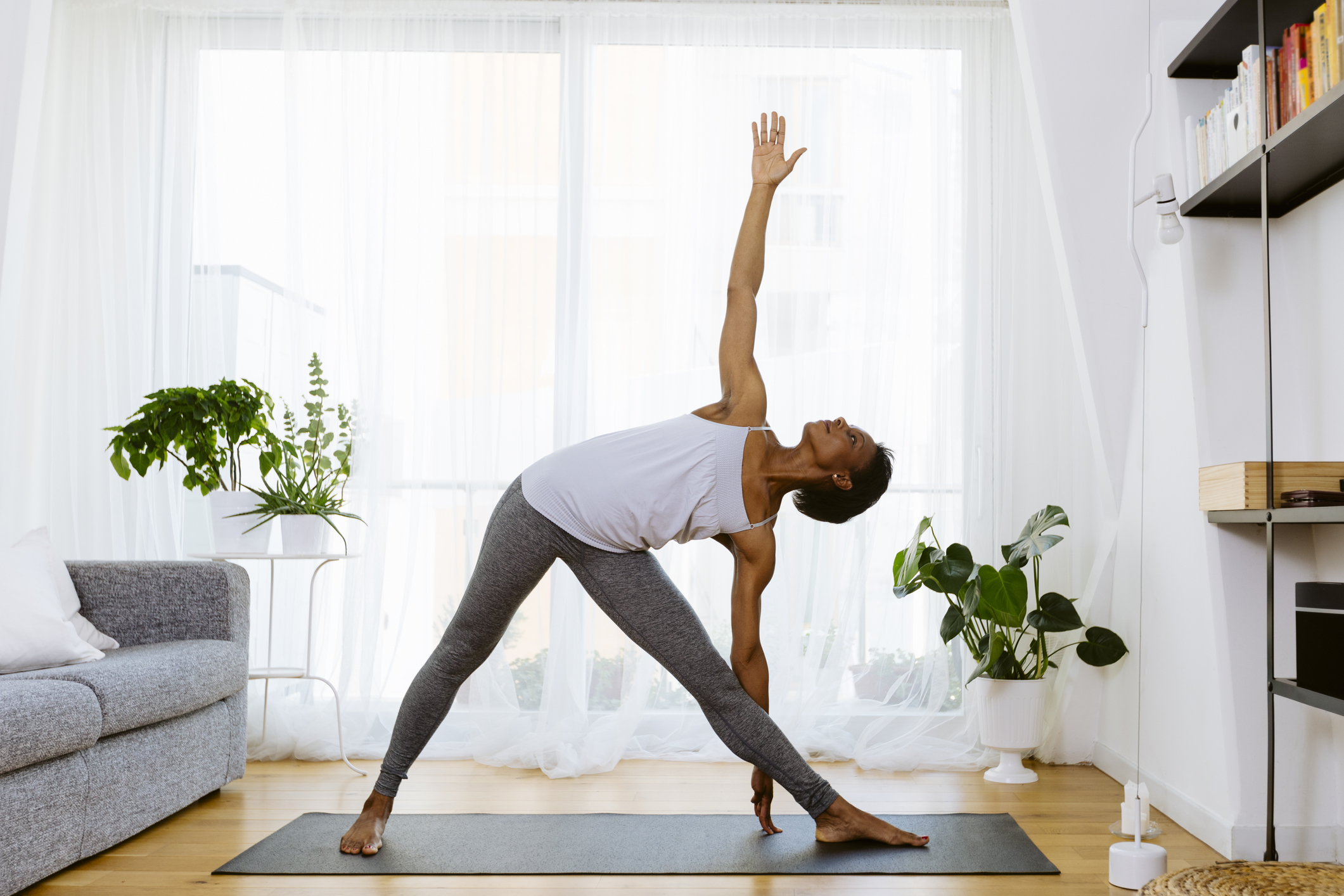Read up on the types of incontinence, plus 8 need-to-know facts about bladder weakness
Ever experienced bladder leaks? It's nothing to be embarrassed about

Ever experienced bladder leaks? It's nothing to be embarrassed about
Incontinence is super common - two thirds of women will experience it at some point in their lives - and no, it doesn't just affect you as you get older. There are actually many different types of incontinence, and here, we've asked a female health expert to break them down for you.
According to Always Discreet, 60% of women who struggle with bladder leaks admitted they're too ashamed to discuss it, with almost a third taking a year or more to share that they had an issue.
What is incontinence?
According to Baz Moffat, athlete and female health coach at The Well HQ, incontinence is when you leak urine, wind or faeces when you don’t want to.
The official figures are one in three women suffer with urinary stress incontinence however when you add childbirth, high intensity exercise and menopause into the mix the figures can be as high as 80% plus.
Symptoms of incontinence
The main symptom is being unable to control your bladder or bowel, so you do not stay dry, the female health coach shares.

Types of incontinence: 2 to know about
It's important that we talk more openly about incontinence: one, to normalise it and, two, so that people don't feel too embarrassed to seek help and support. You'll know that it's a fairly common pelvic floor dysfunction, so why stigmatise it?
Celebrity news, beauty, fashion advice, and fascinating features, delivered straight to your inbox!
"There are many different types of bladder incontinence which is why it is so important you speak to your doctor," adds Dr Anita Mitra, aka the Gynae Geek. "If you get the right diagnosis, the doctor can advise on the most effective treatment for you."
The main two types of incontinence are as follows:
Stress incontinence
Stress incontinence, according to Mitra, is when you experience leaks due to stress on your bladder from the likes of coughing, laughing or exercising.
"If you put too much stress on your bladder over a prolonged period, you may experience stress incontinence. It can also be brought on during pregnancy or due to weight gain," she explains.
Urge incontinence
Urge incontinence, on the other hand, is when you struggle to reach the toilet in time.
"Women can also experience a mix of both," she explains.
FYI, the simplest treatment for incontinence is making sure to do your pelvic floor exercises every day. "It's the simplest and most effective treatment for most women," shares Moffat. "Some may need more than this, but for most this does the job and every woman should be doing their pelvic floor exercises every day whether they have an issue or not," she explains.
8 facts about incontinence to know
1. Bladder leaks may happen at any age
And, as above, they're common than you think. "Bladder leaks are far more common than you think in younger women," shares Mitra.
"Research from Always Discreet found that almost two thirds of people aged eighteen to 24 have experienced them. You can experience them at any age for a wide range of reasons, such as weight gain, the impact of surgery or even your diet. The most important thing is to speak to your doctor if you have any concerns – because it is not something you simply have to put up with."
2. Reducing your liquid intake doesn't prevent leaks
Got that? "A lot of people believe that if they reduce their liquid intake, they reduce their chances of bladder leaks," she explains.
"In fact, this can have the opposite effect. If your urine is very concentrated it can irritate your bladder and make leaks more likely. It is very important that you drink enough water throughout the day."
3. Bladder leaks can be treated
And not just with surgery.
"In most cases, there is always something that can be implemented to better improve your bladder leaks," shares Mitra. "There are different types of bladder weakness, so I’d advise a trip to the doctor to help you first establish the cause, in order to find the best course of action for your situation."
Do note here: surgery is an option, but it’s not the only one, she shares. "Everyone is different and while some people require physio to see improvement, others may be better suited to medication or exercises."
4. The menopause does not make you incontinent
"Many people believe that bladder leaks are just part of going through the menopause," shares Mitra.
"A drop in the levels of oestrogen and progesterone around menopause can cause the bladder and pelvic floor tissues to become thinner and weaker, making you more prone to leaks. It’s important that you speak to your doctor as there is usually something you can do about it.
Her advice? Don’t accept it as a process of the menopause - there are ways of improving and managing it.

5. Pelvic floor exercises won't always cure incontinence
As we've covered, there are various types and different causes of incontinence.
"While pelvic floor exercises can help considerably in some cases, they won’t always cure all forms of bladder leaks," warns Mitra. "That being said, pelvic floor exercises do help many women see a marked improvement and they’re a particularly effective treatment for those with stress incontinence."
6. Strong abs don't = strong pelvic floor
Did you know? "Athletes commonly have weak pelvic floors due to the huge strain that intense training can put your body under," shares Mitra.
Know this: although your abs and core muscles can contribute to the strength of your pelvic floor, you can easily have rock hard abs and a weak pelvic floor, and vice versa. The two don’t necessarily go hand-in-hand so pelvic floor exercises are just as important as any other exercise.
7. Your diet can have an impact
Interesting, huh? "Diet can definitely act as a trigger for bladder leaks, especially those suffering with stress incontinence, when the bladder is put under too much pressure," shares Mitra.
"If you are constantly constipated, you are putting your bladder under access pressure, which could lead to leaks. A lot of diets nowadays focus on eliminating carbs, however this often results in us not eating enough fibre and so causing constipation," she adds.
Similarly, caffeine can also trigger leaks because it can irritate the bladder and acts as a diuretic. "If you are experiencing bladder leaks, it’s worth reducing your intake of caffeine to see if this improves the symptoms," advises Mitra.
8. As can your period
Did you know? Increased progesterone levels before or after your TOTM can act as a muscle relaxant. "Due to your bladder and pelvic floor being a muscle, it can make leaks more likely," shares Mitra.
Worried about incontinence? You can call Bladder Health UK's confidential advice line on 0800 4334 600 or visit bladderhealthuk.org.
Note that the purpose of this feature is to inform, not replace one-to-one medical consultations. For advice tailored specifically to you, always discuss your health with a doctor.

Ally is Marie Claire UK's Senior Health and Sustainability Editor, a well-regarded wellness expert, nine-time marathoner, and Boston Qualifying runner.
Utilising her impressive skillset and exceptional quality of writing, she pens investigative, review and first-person pieces that consistently demonstrate flair and originality.
As well as writing, Ally manages a team of freelancers, oversees all commissioning and strategy for her pillars, and spearheads the brand's annual Women in Sport covers, interviewing and shooting the likes of Mary Earps, Millie Bright, and Ilona Maher. Shortlisted for three BSMEs and winning one in 2022, Ally lives and breathes her verticals: her eye for a story and connections within the wellness sphere are unrivalled. Follow Ally on Instagram for more.
